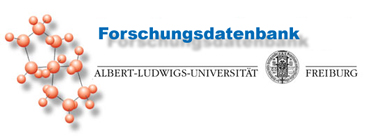| [Zurück zum Forschungsbericht] |
 |

Cognitive control and associative processes in a process dissociation model of the Stroop task with application to list-wide and item-specific proportion congruent effects
Projektbeschreibung:In a seminal study, Lindsay and Jacoby (1994) applied the process dissociation procedure to dissociate word reading and color naming processes in the classical Stroop task. To validate the estimated color naming parameter (C parameter) and word reading parameter (W parameter), Lindsay and Jacoby manipulated color prototypicality (affecting only the C parameter) and the proportion of congruent and incongruent stimuli (affecting only the W parameter). For the proportion manipulation, smaller interference effects are typically obtained when Stroop stimuli are mostly incongruent; a result pattern that was initially attributed to experiment-wide cognitive control strategies of reduced word-reading processes in case that word reading hinders task performance (i.e., when stimuli are mostly incongruent). However, a new account ascribes proportion congruent effects to an associative-learning mechanism (Schmidt & Besner, 2008). This account postulates that the link of a particular stimulus with a particular response is strengthened when the stimulus is frequently shown (i.e., a proportion congruent manipulation might in fact be a contingency manipulation). Given this new interpretation of proportion congruent effects, it is apparent that Lindsay and Jacoby’s interpretation of the W parameter is ambiguous: As long as processes underlying proportion congruent effects are not clear, it cannot be concluded that a change in W parameters caused by a proportion congruent manipulation reflects a change of the impact of word reading processes on responses. And as long as the processes underlying W parameters are not clear, it cannot be concluded that proportion congruent effects represent cognitive control strategies of modulated word reading processes by simply showing that varying proportion congruence modulates W parameters. To break out of this vicious circle, we plan to investigate the processes underlying W parameters as well as the processes underlying proportion congruent effects with the help of separable W parameters for congruent and incongruent stimuli. Planned experiments will manipulate cognitive control and associative learning. The impact of these manipulations on the W parameters of congruent and incongruent stimuli will help to us to assess the relative influence of cognitive control and associative processes on word reading parameters and on proportion congruent effects.Projektlaufzeit:
Projektbeginn: 01.04.2015Projektleitung:
Projektende: 30.09.2017
Dittrich KFinanzierung:
Albert-Ludwigs-Universität Freiburg
Institut für Psychologie
Abteilung für Sozialpsychologie und Methodenlehre
Engelbergerstraße 41
79106 Freiburg i. Br.
Telefon: +49 (0)761 - 203 2470
Fax: +49 (0)761 - 203 2417
Email: sekr.sozpsy-method@psychologie.uni-freiburg.de
http://www.psychologie.uni-freiburg.de/abteilungen/Sozialpsychologie.Methodenlehre
- DFG DI 2086/1-1, DFG
Aktueller Forschungsbericht